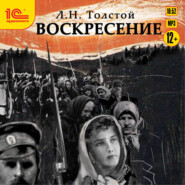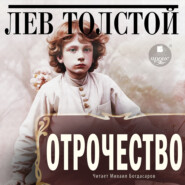По всем вопросам обращайтесь на: info@litportal.ru
(©) 2003-2024.
✖
A Russian Proprietor, and Other Stories
Настройки чтения
Размер шрифта
Высота строк
Поля
"How now, Eduard Ivánovitch," said the husband, as he met the doctor, and rubbing his hands with a gay smile. "I have ordered my travelling-case brought; what do you say to that?"
"That's worth while," replied the doctor.
"Well now, how about her?" asked the husband with a sigh, lowering his voice and raising his brows.
"I have told you that she cannot reach Moscow, much less Italy, especially in such weather."
"What is to be done, then? Oh! my God! my God!"
The husband covered his eyes with his hand… "Give it here," he added, addressing his man, who came bringing the travelling-case.
"You'll have to stop somewhere on the route," replied the doctor, shrugging his shoulders.
"But tell me, how can that be done?" rejoined the husband. "I have done every thing to keep her from going: I have spoken to her of our means, and of our children whom we should have to leave behind, and of my business. She would not hear a word. She has made her plans for living abroad, as though she were well. But if I should tell her what her real condition is, it would kill her."
"Well, she is a dead woman now: you may as well know it, Vasíli Dmítritch. A person cannot live without lungs, and there is no way of making lungs grow again. It is melancholy, it is hard, but what is to be done about it? It is my business and yours to make her last days as easy as possible. It is the confessor that is needed here."
"Oh, my God! Now just perceive how I am situated, in speaking to her of her last will. Let come whatever may, yet I cannot speak of that. And yet you know how good she is."
"Try at least to persuade her to wait until the roads are frozen," said the doctor, shaking his head significantly: "something might happen during the journey."
"Aksiúsha, oh, Aksiúsha!" cried the superintendent's daughter, throwing a cloak over her head and tiptoeing down the muddy back steps. "Come along. Let us have a look at the Shirkínskaya lady: they say she's got lung-trouble, and they're taking her abroad. I never saw how any one looked in consumption."
Aksiúsha jumped down from the door-sill; and the two girls, hand in hand, hurried out of the gates. Shortening their steps, they walked by the coach, and stared in at the lowered window. The invalid bent her head toward them; but when she saw their inquisitiveness, she frowned and turned away.
"Oh, de-e-ar!" said the superintendent's daughter, vigorously shaking her head… "How wonderfully pretty she used to be, and how she has changed! It is terrible! Did you see? Did you see, Aksiúsha?"
"Yes, but how thin she is!" assented Aksiúsha. "Let us go by and look again; we'll make believe go to the well. Did you see, she turned away from us; still I got a good view of her. Isn't it too bad, Masha?"
"Yes, but what terrible mud!" replied Masha, and both of them started to run back within the gates.
"It's evident that I have become a fright," thought the sick woman… "But we must hurry, hurry, and get abroad, and there I shall soon get well."
"Well, and how are you, my dear?" inquired the husband, coming to the carriage with still a morsel of something in his mouth.
"Always one and the same question," thought the sick woman, "and he's even eating!"
"It's no consequence," she murmured between her teeth.
"Do you know, my dear, I am afraid that this journey in such weather will only make you worse. Eduard Ivánovitch says the same thing. Hadn't we better turn back?"
She maintained an angry silence.
"The weather will improve maybe, the roads will become good, and that would be better for you; then at least we could start all together."
"Pardon me. If I had not listened to you so long, I should at this moment be at Berlin and have entirely recovered."
"What's to be done, my angel? it was impossible, as you know. But now if you would wait a month, you would be ever so much better; I could finish up my business, and we could take the children with us."
"The children are well, and I am ill."
"But just see here, my love, if in this weather you should grow worse on the road… At least we should be at home."
"What is the use of being at home?.. Die at home?" replied the invalid peevishly.
But the word die evidently startled her, and she turned upon her husband a supplicating and inquiring look. He dropped his eyes, and said nothing.
The sick woman's mouth suddenly contracted in a childish fashion, and the tears sprang to her eyes. Her husband covered his face with his handkerchief, and silently turned from the carriage.
"No, I will go," cried the invalid; and lifting her eyes to the sky, she clasped her hands, and began to whisper incoherent words. "My God! why must it be?" she said, and the tears flowed more violently. She prayed long and fervently, but still there was just the same sense of constriction and pain in her chest, just the same gray melancholy in the sky and the fields and the road; just the same autumnal mist, neither thicker nor more tenuous, but ever the same in its monotony, falling on the muddy highway, on the roofs, on the carriage, and on the sheep-skin coats of the drivers, who were talking in strong, gay voices, as they were oiling and adjusting the carriage.
II
The coach was ready, but the driver loitered. He had gone into the driver's cottage,[89 - izbá.] where it was warm, close, dark, and suffocating; smelling of human occupation, of cooking bread, of cabbage, and of sheep-skin garments.
Several drivers were in the room; the cook was engaged near the oven, on top of which lay a sick man wrapped up in pelts.
"Uncle Khveódor! hey! Uncle Khveódor," called a young man, the driver, in a tulup, and with his knout in his belt, coming into the room, and addressing the sick man.
"What do you want, rattlepate? What are you calling to Fyédka[90 - Fyédka and Fyédya are diminutives of Feódor, Theodore.] for?" demanded one of the drivers. "There's your carriage waiting for you."
"I want to borrow his boots. Mine are worn out," replied the young fellow, tossing back his curls and straightening his mittens in his belt. "Why? is he asleep? Say, Uncle Khveódor!" he insisted, going to the oven.
"What is it?" a weak voice was heard saying, and a blowsy, emaciated face was lifted up from the oven.
A broad, gaunt hand, bloodless and covered with hairs, pulled up his overcoat over the dirty shirt that covered his bony shoulder. "Give me something to drink, brother; what is it you want?"
The young fellow handed him a small dish of water.
"I say, Fyédya," said he, hesitating, "I reckon you won't want your new boots now; let me have them? Probably you won't need them any more."
The sick man dropping his weary head down to the lacquered bowl, and dipping his thin, hanging mustache in the brown water, drank feebly and eagerly.
His tangled beard was unclean; his sunken, clouded eyes were with difficulty raised to the young man's face. When he had finished drinking, he tried to raise his hand to wipe his wet lips, but his strength failed him, and he wiped them on the sleeve of his overcoat. Silently, and breathing with difficulty through his nose, he looked straight into the young man's eyes, and tried to collect his strength.
"Maybe you have promised them to some one else?" said the young driver. "If that's so, all right. The worst of it is, it is wet outside, and I have to go out to my work, and so I said to myself, 'I reckon I'll ask Fyédka for his boots; I reckon he won't be needing them.' But maybe you will need them, – just say"…
Something began to bubble up and rumble in the sick man's chest; he bent over, and began to strangle, with a cough that rattled in his throat.
"Now I should like to know where he would need them?" unexpectedly snapped out the cook, angrily addressing the whole hovel. "This is the second month that he has not crept down from the oven. Just see how he is all broken up! and you can hear how it must hurt him inside. Where would he need boots? They would not think of burying him in new ones! And it was time long ago, God pardon me the sin of saying so. Just see how he chokes! He ought to be taken from this hovel to another, or somewhere. They say there's hospitals in the city; but what's you going to do? he takes up the whole room, and that's too much. There isn't any room at all. And yet you are expected to keep neat."
"Hey! Seryóha, come along, take your place, the people are waiting," cried the head man of the station, coming to the door.
Seryóha started to go without waiting for his reply, but the sick man during his cough intimated by his eyes that he was going to speak.
"You can take the boots, Seryóha," said he, conquering the cough and getting his breath a little. "Only, do you hear, buy me a stone when I am dead," he added hoarsely.
"Thank you, uncle; then I will take them, and as for the stone, —éï-éï!– I will buy you one."

















